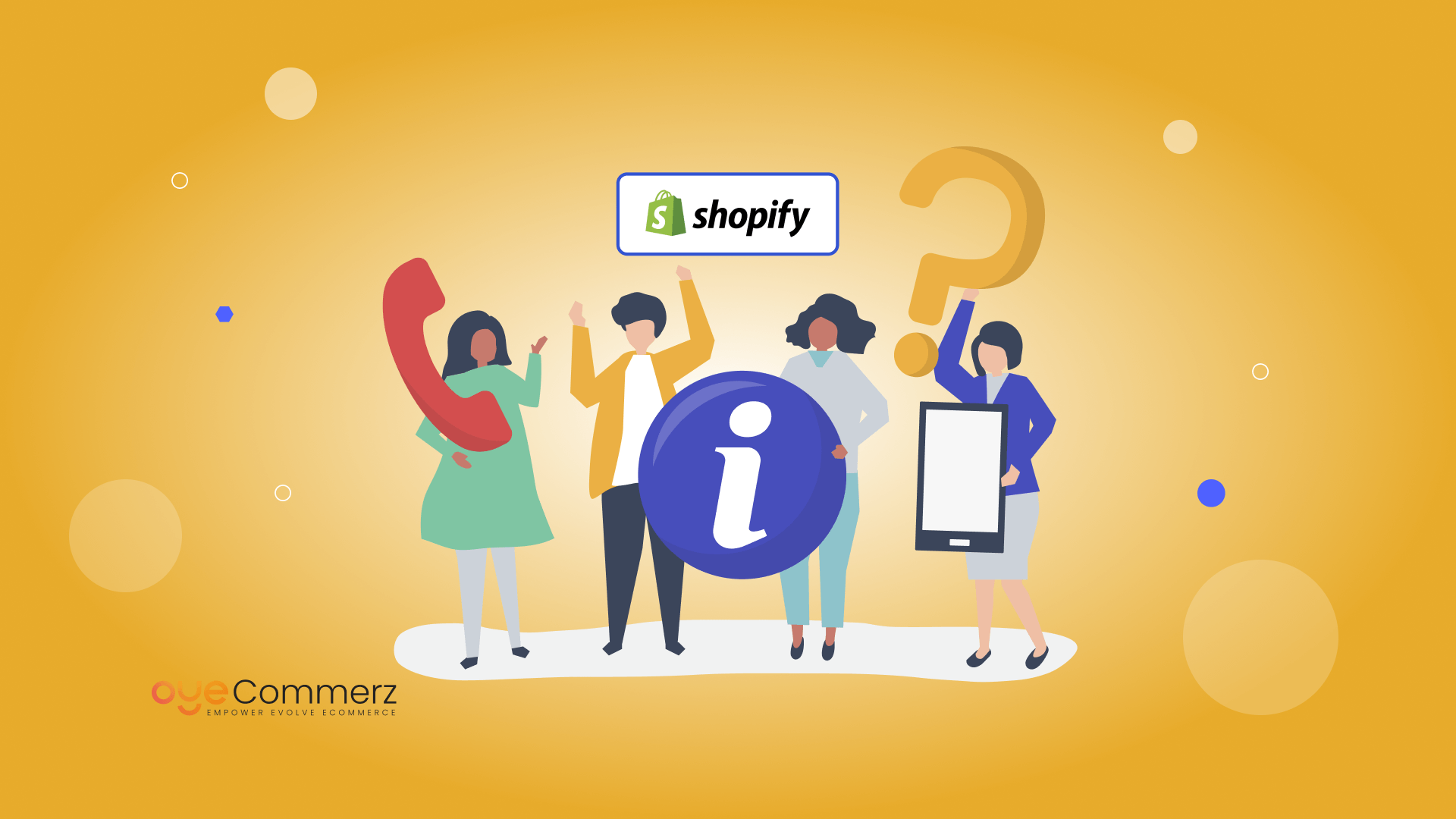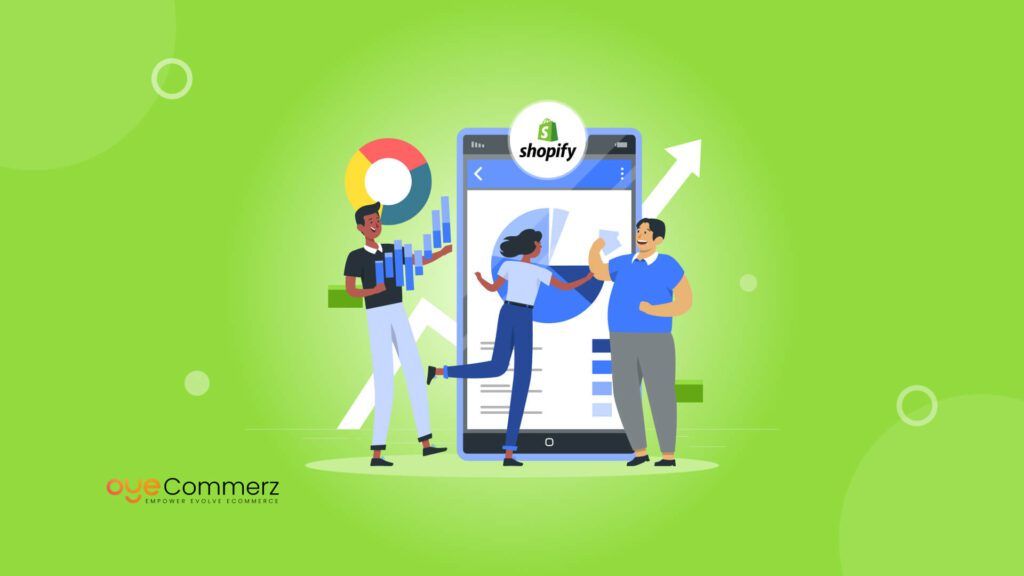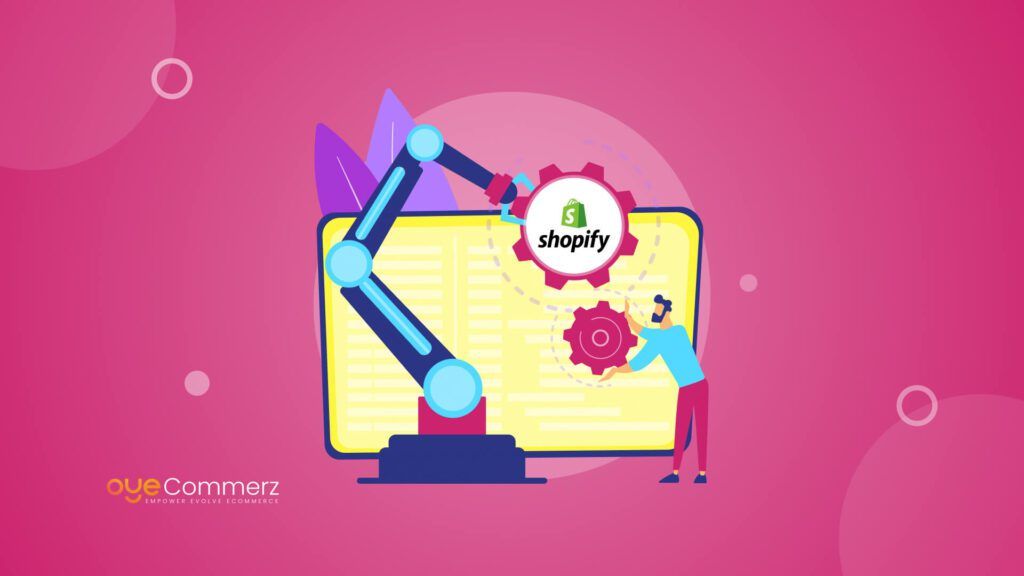Small businesses need affordable solutions that can boost efficiency in today’s rapidly evolving digital marketplace. One highly effective tool for achieving these goals is Shopify integration. However, many SME owners may hesitate to delve into the technical complexities of connecting Shopify to their existing systems. This guide will explore the process of affordable Shopify integration services, why they are essential, the advantages they offer, potential challenges to anticipate, and the key tools required to ensure your business thrives in the long term.
Table of Contents
ToggleUnderstanding Shopify Integration
In its simplest and broadest sense, Shopify integration means the management and linking of your Shopify store with other applications and/or systems for increased effectiveness. Shopify itself is a powerful platform for working with products, transactions, and hosting your website, but integrations help you take your store to the next level beyond the basic features.
It can range from connecting your Shopify store to other applications like Accounting software like QuickBooks, Inventory management software like TradeGecko, Customer relationship management software like HubSpot, or email marketing software like Mailchimp. When the integrations are properly implemented, core processes can be automated, data can be synchronized in real-time and using it. her, the customer shopping experience can be enhanced.
According to Shopify, its platform merchants generated over $7.06 billion in 2023, supporting over 5 million jobs worldwide. This highlights the significant impact that Shopify, when integrated efficiently, can have on small businesses seeking to scale and compete in the digital marketplace
.At this level, such integrations may make small business owners develop a feeling of a possible bewildering evaluation. The idea lies in defining the weaknesses of a store and picking the integrations that will supplement the store’s shortcomings effectively.
The Significance of Shopify Integration for Small Businesses
Small business people most of the time run their businesses with little capital they therefore need to maximize their returns. To be able to automate operations and optimize workflows with the help of Shopify integration is a huge advantage for those companies which need to concentrate on sales instead of efficiency of employment.
- Saving Time and Reducing Manual Work: By syncing with the Shopify system, the need for manual entries is reduced and information like inventory information, customer information, and order status are synchronized in real-time between the two systems. However, to any business –particularly a small enterprise –time is capital and any opportunity that can minimize working with documents is a good way to deploy the time more productively on line revenue-generating activities.
- Improved Accuracy and Fewer Errors: Automation mistakes are usually caused by human factors—if the processes are performed by hand, it is easy to deliver wrong orders, lose customers’ information, or let the inventory go out of control. Such mistakes are commonly avoided through integration as it ensures that the various functions are automated besides creating uniformity in various touchpoints.
- Scalability: While it is possible to start a small business selling just a few products to several customers, the company may expand over a short period, it becomes challenging to meet the expanding needs in stock management, customer service, and sales reporting. The right tools when incorporated into your Shopify store help in the expansion process without the dangers of conceding control.
- Enhanced Customer Experience: One of the major benefits of using integration tools is enhanced customer satisfaction. Shopify integration services can improve customer experience by automating order tracking, providing real-time updates, and ensuring smooth communication between platforms.
Advantages of Integrating Shopify for Small Business
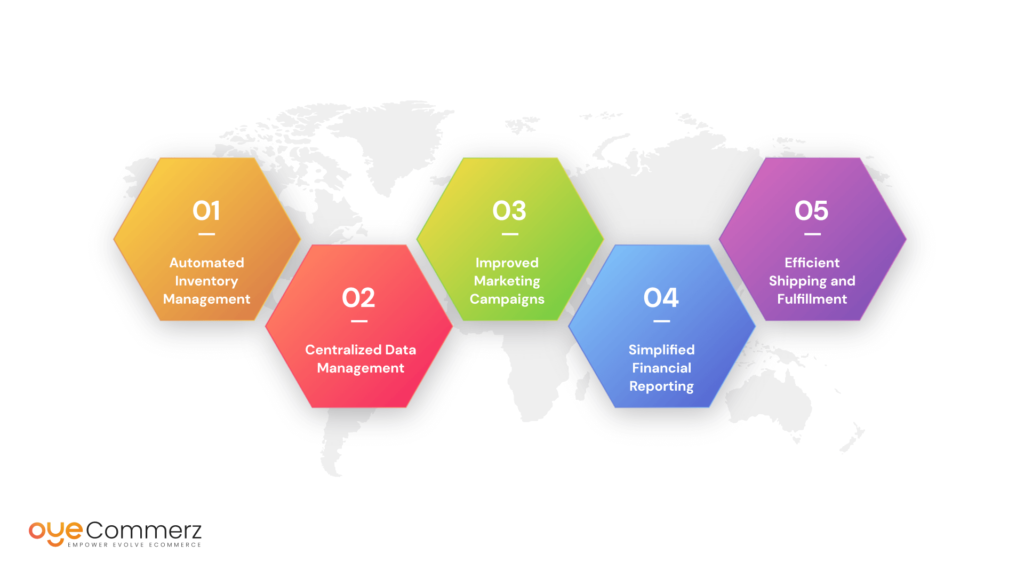
Although it might look quite complicated at first sight, there is no doubt that the possibilities of Shopify integration can benefit small businesses significantly. Below are the key benefits you can expect from leveraging integration tools:
Automated Inventory Management
Shopify integration feature ensures that the inventory level is synchronized with the sales data in such a way that you can never end up with your stock depleted or oversupply the products. Such real-time updating helps your customers not to be disappointed and keeps them informed all the time.
Centralized Data Management
A properly integrated Shopify store also means that all of the business data that you need to work with – including sales reports, customer records, or product specifications are in the same location. They not only improve the decision-making process but also facilitate the time that will be taken while trying to access the data on the other platforms.
Improved Marketing Campaigns
Through the connection of Shopify with email marketing platforms and CRMs, small businesses can easily analyze customer behaviors, and market segmentation and use customer data to create campaigns. This ensures that your marketing endeavors are more accurate hence increasing the possibilities of turning prospects into clients.
Simplified Financial Reporting
Linking your Shopify store to a business’s accounts allows for real-time sales, taxes, and cost information to be pulled. It simplifies preparations of the end-of-year financial statements and helps in the annual budget and forecast planning.
Efficient Shipping and Fulfillment
Logistics and shipping providers such as ShipStation or DHL, are some of the Shopify integrations that facilitate and enhance order fulfillment. These tools help generate, and track the shipping label, and send out the order confirmation to your customers thus making the post-purchase experience smooth.
Common Challenges Small Businesses Face with Shopify Integration
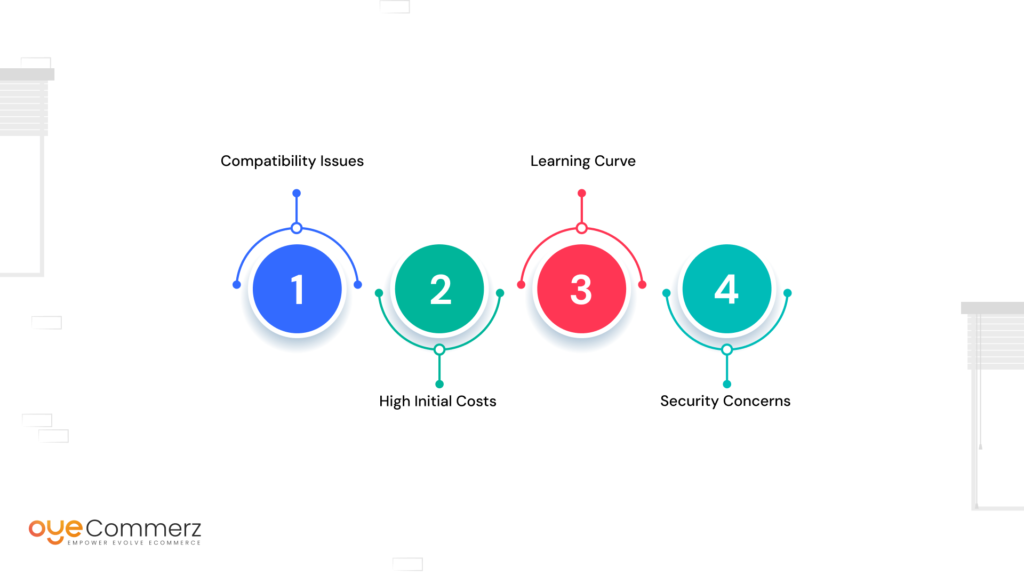
As it has been mentioned, integration with Shopify platforms can have many advantages though in some cases, it can be complicated for small businesses with no IT personnel. Here are some common obstacles and their impact:
Compatibility Issues
Third-party application integration: All the third-party applications may not be fully integrated into the Shopify store. This can result in cases where data does not synchronize in the right way or some functionalities don’t operate as they should. It means small businesses can encounter difficulties when searching for tools compatible with the Shopify store with no issues with integration.
High Initial Costs
Although the majority of Shopify integrations are free, most of the additional features require payment. Employers may be reluctant to spend on such tools especially if they do not know how useful they will be in the future.
Learning Curve
Certain of the integrations fall under the technical category, or they entail more complicated configurations. These tools can be complicated to navigate for small business owners, who may get easily frustrated or take a longer time to execute their plan of implementing the tools.
Security Concerns
Using third-party integrations in customer data and managing financial transactions pose a security challenge. Security measures should always be taken into consideration especially when choosing the tools to use for the projects by small businesses.
As you have learned about the common challenges faced during Shopify integration and is effective to emphasize the solutions to overcome these challenges to ensure a smoother implementation.
Essential Shopify Integration Tools for Small Businesses
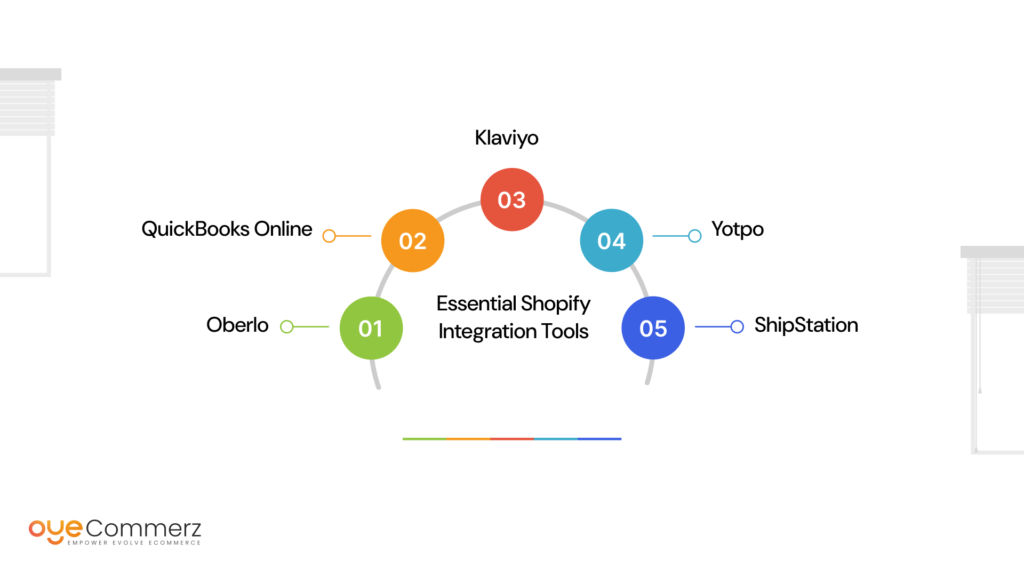
To overcome these challenges it is important to identify the appropriate tool that could be used within the company. Below are some essential Shopify integration tools for small businesses that are affordable, easy to use, and packed with features:
Oberlo
This app is helpful to small businesses that are in the dropshipping business because it enables Shopify users to search for products, add the products, and sell them to customers before they are shipped. It connects the integration for an inventory update and fulfill orders allowing the management of a large product catalog.
QuickBooks Online
Essential for any business aiming at effective management of its finances, QuickBooks syncs with Shopify to monitor expenses, revenue, and taxes, among other things. This tool will be of great help to small business enterprises that need easier ways to manage their books.
Klaviyo
Klaviyo is a very useful tool for businesses that are mainly into email marketing, especially when integrated with Shopify. It enables you to send relevant messages to customers depending on the way they behave thus increasing the chances of sales.
Yotpo
Yotpo allows small businesses to gather customers’ feedback, share user-generated content, and implement simple rewards. This integration increases the number of positive reviews and stimulates repurchasing thus strengthening the trust between small businesses and their viewers.
ShipStation
To ease order shipment, ShipStation integrates with your business Shopify store, and most of the leading shipping companies. This integration can facilitate the generation of shipping labels and that which is used for tracking and sending notifications on delivery.
Shopify Integration Best Practices for Small Businesses
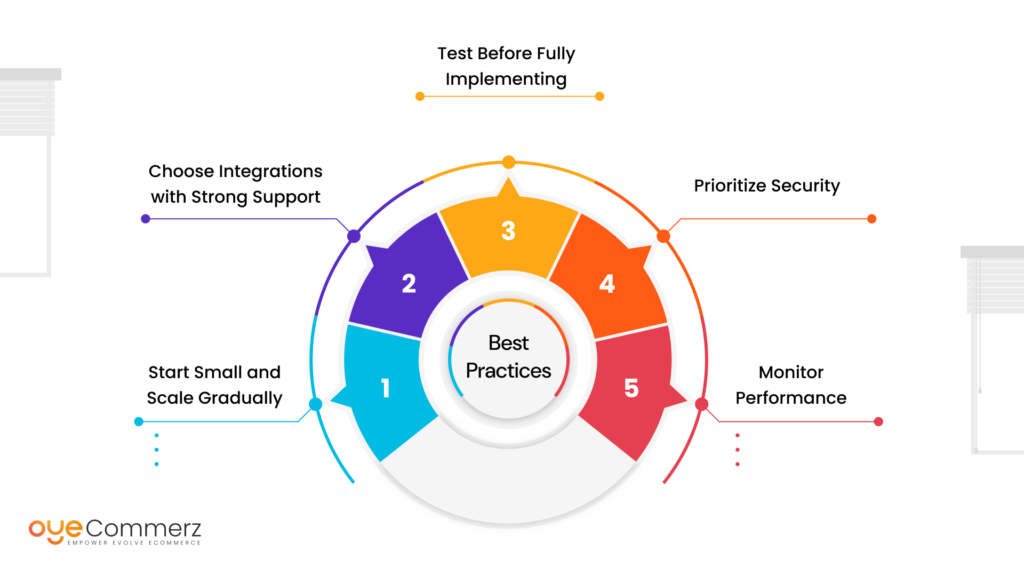
While concerning Shopify integration some structural recommendations can be stated to help small businesses maximize the use of their tools and minimize the number of mistakes. Here’s how to ensure your integration strategy is successful:
Start Small and Scale Gradually: If you are just starting, include only those integrations that you urgently need on your site. Furthermore, it is important to note that with the growth of your business, there is more software that corresponds to other aspects of the company’s activities.
Choose Integrations with Strong Support: Select the tools that provide strong support to the customers, especially during the time of usage of the tool. This will assist in decreasing often-experienced frustration as well as guarantee that problems are solved within the shortest time possible.
Test Before Fully Implementing: Before deciding to implement integrations on all your stores, it is crucial to give a testing phase the deserved attention. They make sure that the tools run as planned so that your operations will not be interrupted.
Prioritize Security: Always go for applications with high-security features when dealing with clients’ personal information. Research only the apps that are authorized by the corresponding industries and follow the rules of data protection.
Monitor Performance: Once you are done with the implementation of those tools on your Shopify store, monitor the results. Ensure that the analytics quantify how the interconnections help to meet your organization’s goals and modify them when needed.
While monitoring performance is key, it’s equally important to stay ahead by exploring future trends in Shopify integration that could shape the e-commerce landscape, keeping your business on the cutting edge.
Unlock Seamless Shopify Integration with OyeCommerz!
At OyeCommerz, we specialize in providing seamless Shopify integration solutions tailored to the unique needs of small businesses. Oyecommerz’s Shopify integration team will help you automate operations, enhance customer experiences, and scale your e-commerce store effortlessly. Whether you’re struggling with inventory management, customer data syncing, or streamlining your order fulfillment, we have the tools and expertise to simplify your workflows. Contact us now to get started on your integration journey!
Contact to Migrate your Site to Shopify Now
Conclusion
Small business Shopify solutions are crucial for automating operations and minimizing routine tasks. While there may be certain challenges, such as incompatibility or security concerns, the benefits far outweigh the drawbacks. By following best integration practices, utilizing essential tools, and closely monitoring the performance of your integrations, your Shopify store can be well-positioned for long-term success.

